Welcome to the summer of “The Dwecision,” which is speeding along faster that LeBron’s “Decision.”
Dwight Howard has alread met with the Rockets, Mavericks, Hawks and Warriors, and the Los Angeles Lakers get the last shot at him today. El Lay can construct a helluva team around him in 2014-15 if they amnesty Kobe Bryant. No, really.
Howard has waited his entire NBA career to be in this position, and he is relishing it.
He was jealous of LeBron James and Chris Bosh in 2010; he never got traded to the one team he most wanted to join – the Brooklyn Nets – and he is faced with the choice of re-signing with the Los Angeles Lakers as they try to rebuild while Bryant recovers from a torn Achilles.
Or he could take his talents to Texas.
He is the top domino, and secondary big things won’t start to fall into place until he has made his Dwecision. But there are an awful lot of dominoes lined up behind him.
Free agency is a ticket by which some of the league’s on-the-fringe teams can snag a difference maker and help put themselves into the conversation of contenders.
Obviously, due to the haul of the summer of 2010 and the two titles that followed, the Miami Heat are amongst the bigger free agency winners in NBA history. But some lesser heralded moves over the past few years—the Chicago Bulls signing Carlos Boozer, the Indiana Pacers signing David West, and the New York Knicks signing Tyson Chandler—have gone a long way toward shuffling the deck of top teams out East.
Out West, concerns about being crippled by the cap were the impetus behind the Oklahoma City Thunder shipping James Harden to the Houston Rockets and the Memphis Grizzlies making Rudy Gay becoming the face of the Toronto Raptors.
We have said it before and we will say it again: Prudent cap management and not overpaying for fringe talent are imperative to success under the current CBA.
Although the free agency class of 2013 probably trails the class of 2010 that featured LeBron James, Dwyane Wade, Chris Bosh, Amar’e Stoudemire, Joe Johnson, Rudy Gay, and David West, it is not a shabby one.
Our top four players are nothing to sneeze at, although the chances are nil that Chris Paul goes anywhere other than Donald Sterling’s office in Beverly Hills to sign his new max deal. The other three — Howard, Al Jefferson and Josh Smith — are likelier than not to move on.
Nikola Pekovic is probably this year’s leading candidate to receive a poison pill deal that the Minnesota Timberwolves may not be able to match. Others—O.J. Mayo and Brandon Jennings come to mind—may be in for a rude awakening when they are not offered truckloads of money reminiscent of prior CBAs.
It will be very interesting to see where Andre Iguodala and Monta Ellis end up. We still are not sure what to make of J.J. Hickson or J.R. Smith’s ability to be everyday contributors. And in the value bin (we think), some of the league’s elder statesmen—Lamar Odom, Manu Ginobili, Chris Kaman, Elton Brand, and Jose Calderon—probably do not have enough left to play 30 minutes a night for a contender but do still have something left in the tank to help.
Our rankings are based not on which player we necessarily think is better than the other, but what we believe they will receive in terms of dollars on the open market. So do not be surprised if our rankings seem top-heavy with big men, because size is a commodity not easily found in today’s NBA.
Another important consideration is upside. Although Tyler Hansbrough may be a better player than Earl Clark is right now, players are often paid based on promise. We take that into account.
And if you happen to be big enough to dunk without jumping and can chew gum while walking, you are in line for $8 million a year, easily. Just ask Omer Asik. Or Jim McIlvaine. Or Shawn Bradley. Or Erick Dampier. Or Travis Knight.
As we always say, on to the rankings.
 1. Dwight Howard (Center, LA Lakers)
1. Dwight Howard (Center, LA Lakers)
Still just 27, we are willing to overlook the disappointing 2012-13 campaign since D12 was playing hobbled for most of it. Fair questions persist as to whether he can lead a team to the promised land, but we know that any team would be willing to roll the dice to find out. If you called any GM and offered Howard in exchange for his starting center, all (except Orlando) would say yes. That’s why he’s still numero uno. JULY 2 UPDATE — After he meets with the Lakers today, no telling when he will make up his mind — or whether Jim Gray will join him for the anouncement.
 2. Chris Paul (Point Guard, LA Clippers)
2. Chris Paul (Point Guard, LA Clippers)
After leading the Clippers to their best season in franchise history and first division title, Paul has gotten over the fact that Donald Sterling outed him as the reason for Vinny Del Negro’s departure. Sterling needed to bring in Doc Rivers to make peace with CP3, and acquiring the coach from Boston was a move that almost assures Paul is staying. He merits No. 2, but nobody expects him to leave Los Angeles. JULY 1 UPDATE — No surprise, he is staying.
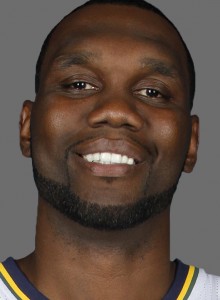 3. Al Jefferson (Center, Utah Jazz)
3. Al Jefferson (Center, Utah Jazz)
One thing we know: A big man who has proven that he can score with his back to the basket is a very valuable commodity. Jefferson is arguably a better all-around offensive weapon than Howard. He is still relatively young at 28 and has been a consistent force in the paint for the Jazz. The bum knee that limited him to 50 games in 2008-09 is now a distant memory. A max player, for sure. JULY 2 UPDATE — Jazz offering 80 percent discount on his jersey (and Paul Millsap’s). Will meet with Bobcats Wednesday.
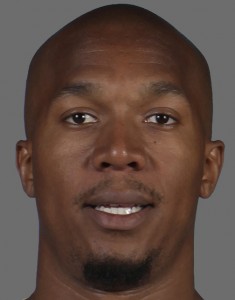 4. David West (Power Forward, Indiana Pacers)
4. David West (Power Forward, Indiana Pacers)
A run to the conference finals could not have come at a better time for West, who has made it known (as have the Pacers) that his preference is to remain in Indianapolis, where he is perfectly cast as a third scorer and is depended on mostly for his sweet mid-range touch and tenacity in the paint. Expect him to receive lots of attention before re-signing in Indy. Could be a max player, but may take less to stay in Indy. Paul George hits the market next summer. JULY 1 UPDATE — Returning president Larry Bird says West is No. 1 priority but Pacers will not pay luxury tax under any circumstances. West finalizing three-year, $36M deal.
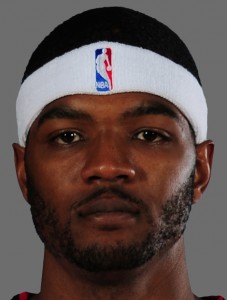 5. Josh Smith (Power Forward, Atlanta Hawks)
5. Josh Smith (Power Forward, Atlanta Hawks)
J-Smoove made headlines this past season when he made it known he would be seeking a four-year max deal worth upwards of $15 million per year. It is difficult to justify paying that kind of money to a player who has not made a single All-Star team in nine years. Still, Smith is one of the most effective defensive players in the league and an explosive finisher in the paint. But which GM will risk his reputation on Smith? That’s a big question. JULY 1 UPDATE — Met with Pistons president Joe Dumars, who is unwilling to make a max offer. Then met with Rockets, who would try to add him in a sign-and-trade with Atlanta if Howard picks Houston.
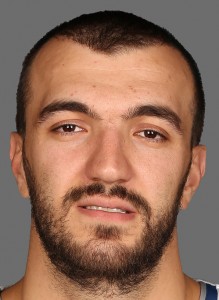 6. Nikola Pekovic [R] (Center, Minnesota Timberwolves)
6. Nikola Pekovic [R] (Center, Minnesota Timberwolves)
Guaranteed to be this year’s recipient of a fat, risky poison pill contract. Although significantly older than Omer Asik, Big Pek has a higher upside and more polished offensive game. When it comes to big men, general managers roll the dice quite often. We will see it with Andrew Bynum and we will see it with Pekovic. But the thinking here is that Pekovic will get more money — unless he gets hurt bowling. JULY 2 UPDATE — Quiet on this front, although the Cavs are reportedly interested. Have cap flexibility to offer backloaded contract.
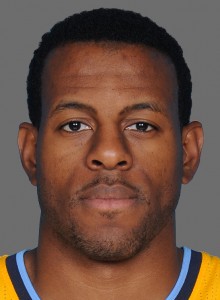 7. Andre Iguodala (Small Forward, Denver Nuggets)
7. Andre Iguodala (Small Forward, Denver Nuggets)
Interesting question: Who is worth more to you? Iggy? Or Monta Ellis? If you answer Ellis, it probably means you overvalue a volume scorer who cannot elevate his teammates. If you answer Iggy, though, it means that you properly recognize and appreciate his ability to affect every single facet of any game he plays, even if he is not shooting or scoring particularly well. A great defender — and GMs value that nowadays more than they used to. JULY 2 UPDATE — Has met with Nuggets, Kings Pistons. Hawks, Pelicans, Warriors among teams that will speak with him next.
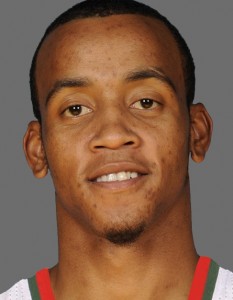 8. Monta Ellis (Shooting Guard, Milwaukee Bucks)
8. Monta Ellis (Shooting Guard, Milwaukee Bucks)
The secret is out: Ellis is a volume scorer who is probably best served as a sixth man who’s only responsibility is to light it up off the bench. Only problem? He turned down a two-year, $24 million extension from the Bucks that we think was more than fair. If Ellis is looking for more on the open market, it shows that he has a false sense of his value. A very talented player, he should draw interest from a team that has cap space and a dearth of options as to whom to spend it on. JULY 1 UPDATED — Knicks are interested, but can only offer $3.2 million. Nobody takes a $9 million haircut.
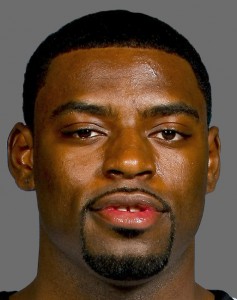 9. Tyreke Evans [R] (Point Guard/Small Forward, Sacramento Kings)
9. Tyreke Evans [R] (Point Guard/Small Forward, Sacramento Kings)
One of this generation’s enigmas, Evans is still searching for the touch that enabled him to become one of the few rookies in history to average 20 points, 5 rebounds and 5 assists. Still just 23, NBA GMs will think a new coach and system can re-tap that potential, and potential gets you paid. The Kings will have a new coach and a new system, so they should have a “should we match?” question on their hands come July 10. JULY 2 UPDATE — Pelicans have made a four year offer for between $40-$48 million. See how Reggie Miller reacted.
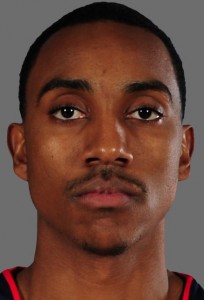 10. Jeff Teague [R] (Point Guard, Atlanta Hawks)
10. Jeff Teague [R] (Point Guard, Atlanta Hawks)
Perhaps the most intriguing young point guard on the market, his value has been established at about $8-$9 million thanks to the extensions doled out to Jrue Holiday and Ty Lawson. He probably stays in Atlanta, though in-demand restricted free agents sometimes get overpaid. (Ask Landry Fields.) Much depends on what GM Danny Ferry pulls off with all his cap space. For a team with only five players under contract (not counting draftees), he is somewhat expendable given that Lou Williams is one of those five. JULY 1 UPDATE: Where does Teague rank among point guards? Read this. Bucks coach Larry Drew likes him and would like Milwaukee to pursue.
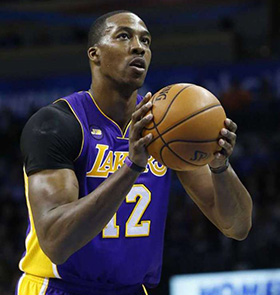
cheap Ravens jersey,No sale tax, 100% satisfaction, worldwide shipping within one week.